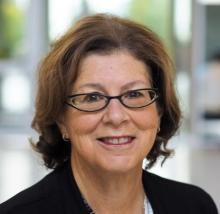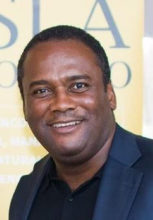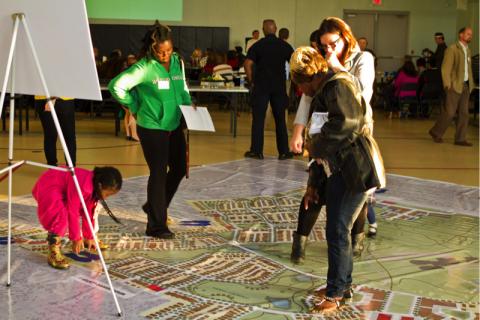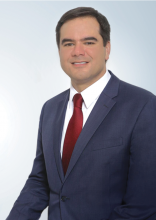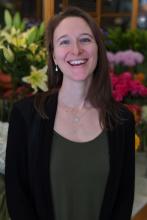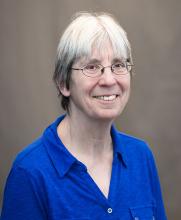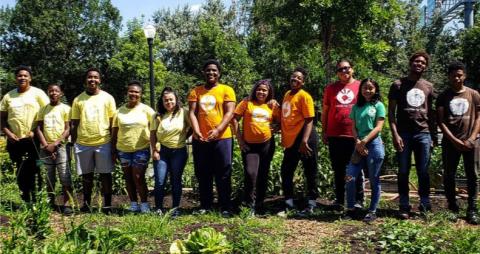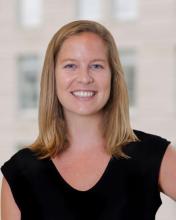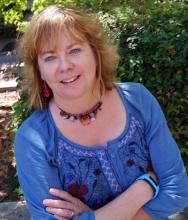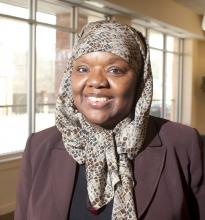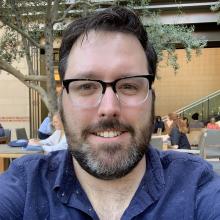These essays will focus on influence and power in mixed-income interventions and how to broaden the range of beneficiaries from mixed-income communities. Questions explored include: How can cross-sector efforts generate a greater commitment to equitable development? How can residents and other community stakeholders who are traditionally excluded from influence and control participate more fully in shaping policy reform and implementation? What are some pathways to community ownership, and can they reduce the displacement effects of mixed-income revitalization? What is the best way to frame narratives about mixed-income efforts so that they engage wider audiences and generate public will for greater inclusion and equity? What special populations within mixed-income communities, such as youth, women, and fathers, require a great level of strategic attention and focus?
The Essays
- Multi-sectoral Partnerships for Social and Affordable Housing: The Community Land Trust Portfolio Model
- Community Land Trusts: Combining Scale and Community Control to Advance Mixed-Income Neighborhoods
- The Role of Community Benefits Agreements in Increasing Equity and Inclusion
- Addressing Resistance to Mixed-Income Communities through Empathetic Planning Techniques
- How Do Fish See Water? Building Public Will to Advance Inclusive Communities
- Community Building and Neighborhood Associations: Strategies for Greater Mixed-Income Inclusion in Seattle’s HOPE VI Neighborhoods
- Reassessing Market-Rate Residents' Role in Mixed-Income Developments
- Youth Voice and Leadership in Mixed-Income Communities: Heritage Park and the Green Garden Bakery
- Untapped Assets: Developing a Strategy to Empower Black Fathers in Mixed-Income Communities
- Black Feminist-Centered Community Organizing as a Framework for Developing Inclusive Mixed-Income Communities: Nicetown CDC’s Village Network and Outreach Initiatives in Philadelphia
- Changing the Narrative and Playbook on Racially Concentrated Areas of Poverty
Building Mixed-Income Communities through Community Land Trusts
The two essays in this section expand our understanding of how community land trusts (CLTs) advance inclusion and equity through a commitment to resident power in decision-making processes, robust multi-sector partnerships, and long-term financial sustainability. CLTs are nonprofit corporations that buy and preserve land in perpetuity for the preservation or development of affordable housing. They are run by a board of directors composed of community members and other stakeholders, charged with representing the interests of residents who live within and around the community. Whereas market-rate housing in revitalizing areas may spur gentrification and the displacement of low-income residents, CLTs ensure that people with low incomes continue to have an affordable place to live in the community and that their voices and participation are valued.
In “Community Land Trusts: Combining Scale and Community Control to Advance Mixed-Income Neighborhoods,” Emily Thaden and Tony Pickett of the Grounded Solutions Network observe that practitioners and advocates must balance their pursuit of two goals, both of which are necessary to advance racial justice and inclusive community development. They write:
Land is power, and people united is power. Hence, we need to adopt a reconciled approach that advances both control of land at scale and democratic community decision-making to achieve gains for residents, neighborhoods, cities, and society. Under a CLT approach that gives equal priority to community control and impact from scale, the systems and structures of land use policy and the housing finance and real estate industries may be fully utilized, so that communities can gain land in trust and hold CLTs accountable to their mission when scaled.
In “Multi-Sectoral Partnerships for Social and Affordable Housing: The Community Land Trust Portfolio Model,” Penny Gurstein from the University of British Columbia describes a CLT in Vancouver, British Columbia that encompasses multiple sites owned by a single, multi-sector development partnership. The approach captured by Gurstein’s case study enables more-expensive rental units to subsidize lower-rent units, thereby ensuring both financial stability and a mix of incomes across the portfolio.
These essays document key ingredients of mixed-income CLTs in which residents have meaningful voice, power, and leadership—places where inclusion and equity are more than just words in a vision statement. Those ingredients include strong multi-sector partnerships, active governing boards, collaborations between government officials and non-profit representatives, and investment by social finance institutions. The essays also illustrate the necessity—and the complexity—of achieving a mixture of housing tenures that are sustainable over time and underscore how important it is for practitioners, policymakers, advocates, developers, and funders to support expansion and capacity building within the CLT movement.
Multi-sectoral Partnerships for Social and Affordable Housing: The Community Land Trust Portfolio Model
- Penny Gurstein, University of British Columbia
Dr. Penny Gurstein is Professor and immediate past Director at the School of Community and Regional Planning and the Centre for Human Settlements at the University of British Columbia. She is founding Director of the Housing Research Collaborative a community of housing researchers, providers and policy makers focused on understanding systemic impediments in the housing system and the development of models to address housing unaffordability. She is co-chair of the Pacific Housing Research Network and a registered member of the Canadian Institute of Planners. Dr. Gurstein has been appointed to the Board of Commissioners of BC Housing Management Commission from 2018 to 2021.
Community Land Trusts: Combining Scale and Community Control to Advance Mixed-Income Neighborhoods
- Emily Thaden, Grounded Solutions Network
- Tony Pickett, Grounded Solutions Network
Emily Thaden, Ph.D. is the Director of National Policy & Sector Strategy at Grounded Solutions Network, which is a national nonprofit membership organization consisting of community land trusts, inclusionary housing programs, and nonprofits that create and steward housing with lasting affordability. Her relevant research has been published in Housing Studies, Urban Geography, Journal of Architectural and Planning Research, Social Science Quarterly, Shelterforce,and numerous reports published by the Lincoln Institute of Land Policy. She received her masters and doctorate in applied community research from Vanderbilt University and her bachelors from New York University. She is also currently on the Board of Commissioners for Nashville’s housing authority, the Metropolitan Development & Housing Agency.
Currently serving as Chief Executive Officer for the Grounded Solutions Network, Tony Pickett has been described by collaborators as innovative; thinking about and achieving equitable outcomes in a comprehensive and cross-disciplinary manner. Under his leadership Grounded Solutions is advancing a new racial equity focused agenda for its policy and capacity building work, to increase the scale and impact of housing programs with lasting affordability. Tony is a graduate of the Cornell University School of Architecture, Art and Planning with a more than 35-year professional career as a successful architect and shared equity affordable housing development practitioner.
Activating Community Voice, Power, and Influence: Who Has a Say and Who Benefits in Mixed-Income Communities?
This group of essays in the What Works Volume center on the roles community members and the wider public play in policy and community-change processes. These essays highlight ideas and real examples of how engaged, meaningful participation leads to more equitable and inclusive mixed-income communities. The authors bring diverse perspectives and approaches to mobilizing community power. Case studies address the dynamics of representation, power building, and influence among low-income people and communities of color. These essays also examine the value and challenges of collaborative planning and community-change processes.
In “How Do Fish See Water? Building Public Will to Advance Inclusive Communities,” Tiffany Manuel examines how widespread apathy and outright resistance to mixed-income development can be traced to a deeply seeded history of racism and inequality in the U.S. She writes:
“Unlike climate change, health care, education, or other social ‘issues’ that are well-understood as requiring public intervention, racial and economic segregation operates so ubiquitously that it is often ignored as a ‘thing’ to be solved. It just is.”
Manuel argues that public buy-in is essential if our cities and regions are to forge an inclusive future. She dissects the beliefs and attitudes underlying the acceptance of segregation, demonstrating how the narratives of scholars working to promote inclusion may conflict with the dominant public narratives about segregation. She proposes practical principles for action in reshaping and mobilizing public will to fight exclusion.
Aly Andrews and Sydney VanKuren present an innovative approach to addressing the unconscious biases that can motivate community members’ opposition to mixed-income developments in their essay, “Addressing Resistance to Mixed-Income Communities through Empathetic Planning Techniques.” They explain the psychological phenomenon behind common arguments to mixed-income development and posit “empathetic planning” as a method to help community members recognize their fears and underlying beliefs in order to move past them. Empathetic planning “is not about manipulating community members,” Andrews and VanKuren emphasize. “It is about getting members of the public to become self-aware of their own framing—and putting that framing aside—to make decisions for the future of their community.”
Ralph Rosado’s essay, “The Role of Community Benefits Agreements in Increasing Equity and Inclusion,” examines the benefit and necessity of active community voice and participation in holding developers accountable. Rosado demonstrates the immense latent power that communities hold and the importance of ensuring that community members are involved throughout the development process. Rosado presents a case comparison of pathways taken in Los Angeles and New York to demonstrate the complex political stories behind different approaches to community benefits agreements and the necessity of transparency in order to honor a community’s unique needs and values.
Every author in this section makes a strong argument for why inclusive and equitable mixed-income communities must start with and remain true to inclusive and equitable participatory engagement. Those who seek to promote mixed-income communities must first work to address the root causes of community or broader public resistance, see and understand it, and work with community members to ensure their voices and values are part of the solution.
The Role of Community Benefits Agreements in Increasing Equity and Inclusion
- Ralph Rosado, Metropolitan Center, Florida International University
Ralph Rosado, PhD, AICP, is Village Manager of North Bay Village, Florida, as well as Senior Fellow at the FIU Metropolitan Center, and an instructor in graduate and professional programs at the University of Miami and Florida International University. Ralph holds a PhD in City Planning from the University of Pennsylvania, with a focus on Neighborhood Revitalization, Economic Development, and Affordable Housing; a joint Master’s degree in Public Policy and Urban Planning from Princeton University, where he was elected as the first Hispanic in Princeton University’s history to serve as President of the university’s Graduate Student Government for Public Affairs; and a Bachelor of Arts degree in English from Florida International University’s Honors College. While in graduate school, at the invitation of President George W. Bush, Ralph served as a White House Graduate Intern with the United States Department of Housing and Urban Development.
Honors include leading or serving as part of teams that have earned three statewide awards from the American Planning Association’s Florida chapter, being named a Miami Leader (one of Miami’s Top Nonprofit Executives), by the Miami Foundation, 2012, and a Top Latino Leader of Miami, by Latino Leaders Magazine, 2013. The Affordable Housing program he co-designed and co-teaches recently won an award for Best Program in the area of Housing & Affordability in Miami-Dade.
Addressing Resistance to Mixed-Income Communities through Empathetic Planning Techniques
- Aly Andrews, Project Management Advisors, Inc.
- Sydney VanKuren, Farr Associates
Aly Andrews is currently a Project Manager and real estate consultant at Project Management Advisors, where she expertly manages the details of various architecture and construction projects and communicates them to the rest of the project team. Aly worked at Farr Associates from 2014 to 2018 as an urban designer and planner. With a background in architecture, urban planning & design, her work at Farr focused on improving community engagement, tactical interventions, transit-oriented development, pedestrian and bike mobility, and resilient neighborhoods.
Sydney VanKuren joined Farr Associates in 2015, focusing on sustainable urbanism projects and management of The Pattern Project, a Farr Associates initiative to accelerate change around decarbonization strategies. When working on the book Sustainable Nation: Urban Design Patterns for the Future (2018) by Doug Farr, she realized just how much power local communities and local actors have in shaping the future of their neighborhoods. She focuses on providing neighborhoods with tools that will help them create a sustainable future, faster.
Sydney has professional experience in biology, research analysis, science communication, and environmental planning and policy. She holds a bachelor’s degree in Natural Resources as well as a master’s degree in Urban Planning and Policy. She is an EcoDistricts Accredited Professional. In 2017, she joined the Board of the Center for Neighborhood Technology’s Young Innovators.
Dr. Tiffany Manuel is the President and CEO of TheCaseMade, a public benefit corporation dedicated to helping leaders powerfully and intentionally make the case for systems change. With more than 25 years of experience in the non-profit, government, and private sectors, she works with changemakers and innovators across the U.S, who are building communities equitable, diverse, and inclusive communities. Dr. Manuel is passionate about using the insights harvested from this work to increase opportunities for public involvement with issues of poverty, inequality and social exclusion. Dr. Manuel earned her doctorate and master's in public policy from the University of Massachusetts Boson, a master's degree in political science from Purdue University, and a bachelor's degree from the University of Chicago.
In Community Building and Neighborhood Associations: Strategies for Greater Mixed-Income Inclusion in Seattle’s HOPE VI Neighborhoods, Stephanie Van Dyke and Ellen Kissman present an in-depth review of the evolution of the Seattle Housing Authority’s approach to mixed-income community engagement. The Seattle Housing Authority (SHA) has taken a strategic approach to mixed-income inclusion throughout its 25-year history of redeveloping public housing through the federal HOPE VI program. SHA has created staff positions for “community builders” who are dedicated to weaving connections among residents, and has reimagined the roles of neighborhood associations, going beyond conventional purposes to attempt to leverage them as unifiers that bring homeowners and renters together. The authors describe the mixed-income communities where these strategies have helped to forge common ground among residents, and created environments where community members have opportunities to contribute meaningfully to their neighborhoods. The authors distill SHA’s inclusion strategy, writing, “Making a mixed-income community requires more than taking some acres of land, building…housing for people at different income levels, and leaving the rest to chance. To lay the groundwork for resilient, safe, welcoming communities, developers of mixed- income communities should strive to create the conditions for people to move outside the comfort zones of their class, culture, or race, and find common ground, mutual respect, and trust.”
Community Building and Neighborhood Associations: Strategies for Greater Mixed-Income Inclusion in Seattle’s HOPE VI Neighborhoods
Stephanie Van Dyke, Seattle Housing Authority
Ellen Kissman, Consultant
Stephanie Van Dyke was responsible for overseeing neighborhood revitalization including development of affordable housing, community facilities, parks and public infrastructure. She is leading the redevelopment of Yesler Terrace public housing site into a transit-oriented mixed-income urban neighborhood. Three neighborhood efforts, Lake City, High Point, and Rainier Vista, resulted in 2,600 new homes for seniors, families, and people with disabilities of all incomes. Stephanie launched the homeWorks project at the Seattle Housing Authority which carried out successful occupied rehabilitation of 22 low income housing high rise buildings. Stephanie Van Dyke has a Master of Arts degree in Public Administration from the University of Washington, a Bachelor of Arts degree from Harvard University and completed an apprenticeship in carpentry with Carpenters Local 131.
Ellen Kissman is a planner and policy analyst with more than 30 years of experience in Seattle. She has worked for the City of Seattle and the Seattle Housing Authority. Since 2006, her consulting practice has served the public and nonprofit sectors, offering grant-writing, research, program evaluation, and project management services to government and nonprofit sector clients. Ellen was part of the Seattle Housing Authority team that brought more than $100 million in funding awards to the Seattle area. She contributed to successful HUD grant applications for redevelopment at Rainier Vista, High Point, Lake City Village, and Yesler Terrace. Ellen has a Master of Public Health in Environmental Health degree and a Master of Science in Urban Planning degree from Columbia University and a Bachelor of Arts from The Evergreen State College.
Who Benefits?
These two essays are the first of several in this volume to delve into issues concerning specific populations within mixed-income communities. In “Reassessing Market-Rate Residents’ Role in Mixed-Income Developments,” Michaeljit Sandhu takes an incisive look at the role and perception of residents of market-rate units. He points out that much of the research and discussion of mixed-income communities focuses on the needs and outcomes of low-income households, reflecting planners’ hope that market-rate residents could play “a powerful social and structural role in the lives of their lower-income neighbors.” However, after reviewing the existing evidence on perspectives and experiences of residents of market-rate units—including his own qualitative study—Sandhu asserts that:
In many cases, market-rate residents, rather than their low-income neighbors, have become the primary beneficiaries of the sites’ social and structural features. Empirical evidence suggests that market-rate residents are as likely to enforce stigmas and use their social connections, market power, and political influence to their advantage as to support and engage with their lower-income neighbors.
Sandhu suggests implications for stronger thinking and action to leverage more inclusive benefits from “class-desegregated settings.”
We are thrilled to lift up a focus on the experiences of youth in a mixed-income development by centering the voices of youth themselves in “Youth Voice and Leadership in Mixed-Income Communities: Heritage Park and the Green Garden Bakery,” co-authored by youth contributors Ephraim Adams, D'Loveantae Allen, and Mohamed Mohamed; Joni Hirsch and Taryn Gress from the National Initiative on Mixed-Income Communities; and Elana Dahlberg and Alecia Leonard of Urban Strategies Inc. (USI).
Green Garden Bakery is an innovative social enterprise at Heritage Park, a mixed-income development in Minneapolis. Conceived of and created by youth residents of the development with support from USI staff and local partners, the bakery emerged out of young residents’ desire to use the baking and gardening skills they were learning through a USI program to improve the community’s access to nutritious food and to generate local employment. The reflections of youth spotlighted in this essay convey the challenges of stigma and division that can emerge in a mixed-income community as well as the positive role youth can play to disrupt those dynamics. The authors also share insights about the impacts of Green Garden Bakery on youths’ own sense of self and community involvement. As one youth shared: “Being a part of Green Garden Bakery, it brought me out of my comfort zone and I realized there are so many cool people around the community, like I should’ve known them back then, and it’s like what have I been doing this whole time?” The essay concludes with advice from the young authors to their peers and adults, with insights about pushing through initial discomfort to get to more meaningful and nurturing interactions.
Reassessing Market-Rate Residents' Role in Mixed-Income Developments
- Michaeljit Sandhu, Harvard Law School & the University of California, Berkeley
Michaeljit Sandhu is a PhD student in Sociology at the University of California, Berkeley and a JD student at Harvard Law School. He is interested in why people move, what segregation is, and when democracy works.
Youth Voice and Leadership in Mixed-Income Communities: Heritage Park and the Green Garden Bakery
- Ephraim Adams,Sales Lead - Executive Team, Green Garden Bakery
- D'Loveantae Allen, Sales Lead - Junior Executive Team, Green Garden Bakery
- Mohamed Mohamed Entrepreneurship Lead - Executive Team, Green Garden Bakery
- Joni Hirsch, National Initiative on Mixed-Income Communities
- Taryn Gress, Strategic Director, National Initiative on Mixed-Income Communities
- Elana Dahlberg, Associate Project Manager, Urban Strategies Inc.
- Alecia Leonard, Regional Vice President, Urban Strategies, Inc.
Read the Adams, Allen, Mohamed, Hirsch, Gress, Dahlberg, and Leonard essay
Ephraim Adams is the sales lead for Green Garden Bakery’s Executive Team. He is a 17yr old senior at Hopkins High School. Ephraim has lived in Heritage Park since 2011 with his mother and 3 siblings. His older brother is on the alumni board of Green Garden Bakery and his younger siblings are currently going through Green Garden Bakery’s workforce program. He is one of the oldest members of GGB’s current executive team so stepping up as a leader has been really important to him. Ephraim is known for exerting positive behavior and communication with others around him, which helps him with talking to customers at sales and public speaking. You never would have guessed how shy he was before Green Garden Bakery! Ephraim is currently applying for college and would like to pursue a field in computer science. His highlight of his summer was catering an event for GGB this summer at a Google workshop. It exposed him to lots of new people in the technology field. Ephraim says, “Being at GGB is truly a blessing. Being able to learn different variety of skills helped shape who I am and there is only more to come”.
D’Loveantae Allen is a sales lead for the Green Garden Bakery’s Junior Executive Team. He is 14yrs old, has lived with his mom and two younger siblings in Heritage Park since 2006, and is a Freshman at Hope Academy High School. He is the youngest member of GGB’s junior executive team but his age doesn’t define his leadership within the sales and marketing teams. He excels at engaging with customers, adding wit and humor to GGB’s social media posts, and running promotions at sales to help sellout. He also is GGB’s grammar king and helps manage the business email account and proofread materials. Besides his involvement in GGB, D’Loveantae spends a lot of time babysitting his baby brother and sister, tutoring fellow students at Hope Academy, and plans to play basketball for Hope this year. When D’Loveantae gets older he wants to become an astronomer and study space because it amazes him how vast and unknown it is. He first was exposed to astronomy when he was 8 years old and his mom needed to bring him to her class at a local community college because she had nobody to watch him. The class just happened to be astronomy, he answered one of the professors questions correctly, and has been hooked ever since. D’Loveantae says “working at GGB has been life changing, I truly enjoy the place I work and the people I spend my time around on and off the clock.”
Mohamed Mohamed is the entrepreneurship lead for Green Garden Bakery’s Executive Team. He is a 17yr old senior at Hopkins High School. Both Mohamed’s mom and grandma have homes in Heritage Park and he is the oldest of 5. Mohamed first got involved in Green Garden Bakery’s production crew after participating in cooking class but it wasn’t until he stepped up into a leadership position that he found his strengths in GGB’s entrepreneurship administration and operations work. Mohamed likes thinking big picture and asking the tough questions (or most questions for that matter). Along with GGB, Mohamed plays football (and is an avid football fan) and often watches his new baby brother. Currently, Mohamed is applying for college and would like to pursue a career in engineering, business, or a related STEM field. Mohamed says “GGB has helped me grow so much over the past two years, I’ve become so much more confident and mature through my experiences as a leader in the community”
Alecia Leonard is a Regional Vice President who provides overall strategic and operational direction for USI's sites in Minneapolis, MN, Pittsburgh, PA, Tulsa, OK, and Columbus, OH. Alecia previously served as the Director of Resident Development and Training where she trained staff on USI's case management model and led the rollout of LEARN to all USI sites. Prior to joining Urban Strategies, Alecia worked as a research assistant with the Center for Urban and Regional Affairs at the University of Minnesota. Alecia holds a Master’s degree in Social Work from the University of Minnesota in St. Paul, MN and a Bachelor’s degree in Social Work from Bethel University.
Elana Dahlberg is the Project Manager for Urban Strategies, Inc. in Heritage Park. Ms. Dahlberg has been working for USI for the past six year and oversees USI's Minneapolis program initiatives and partnerships. Ms. Dahlberg is responsible for human capital development among Heritage Park residents and provides the technical support to the youth leaders who develop Green Garden Bakery. Prior to joining Urban Strategies, Inc. Ms. Dahlberg was developing out of school time youth programming for a local community center in the neighborhood. Ms. Dahlberg has a Masters of Social Work and Nonprofit Management Certificate from the University of MN.
Taryn Gress, MSSA, is the Strategic Director of the National Initiative on Mixed-Income Communities (NIMC) at Case Western Reserve University. She provides strategic direction of the applied research center and has led NIMC research on three Scans of the Field studies, a study of 259 HOPE VI sites and supported numerous other research and consulting projects on mixed-income communities and is currently leading NIMC’s strategic support of the Cuyahoga Metropolitan Housing Authority’s mixed-income planning effort in the Woodhill Homes Estates in Cleveland, Ohio. Gress came to NIMC from The Civic Commons, a community and civic engagement organization serving Northeast Ohio. She has also worked with Cleveland community-based nonprofits Slavic Village Development, America SCORES Cleveland, and The Ohio State University Extension in Cuyahoga County. Gress holds a Bachelor of Arts from the College of Wooster and a Master of Science in Social Administration from Case Western Reserve University.
Joni Hirsch serves as a Policy Analyst at the Center for the Study of Social Policy, where she coordinates the design and implementation of community network-building strategies in Washington, D.C., public housing sites slated for mixed-income redevelopment. She is also a member of the Mixed-Income Strategic Alliance team, and a Research Affiliate for the National Initiative on Mixed-Income Communities. She holds an M.A in City Planning from the University of California Berkeley.
This pair of essays comes at a particularly opportune moment as America grapples with its longstanding failure to fully acknowledge and address the devastating, enduring impact of racism on the lives of Black people. In “Untapped Assets: Developing a Strategy to Empower Black Fathers in Mixed-Income Communities,” Clinton Boyd, Jr. and Deirdre Oakley draw attention to the specific challenges faced by Black men, particularly those who are fathers, in mixed-income communities. They enumerate ways in which Black fathers are formally and informally prevented from being full participants in the lives of their children and full contributors to the flourishing of their communities. They offer specific policy and practice propositions to embrace and benefit from all that Black fathers can offer.
Akira Drake Rodriguez and Majeedah Rashid tackle three big objectives in their essay, “Black Feminist-Centered Community Organizing as a Framework for Developing Inclusive Mixed-Income Communities: Nicetown CDC’s Village Network and Outreach Initiatives in Philadelphia.” First, they define and elevate Black feminist politics and organizing as essential and powerful forces for greater inclusion and voice in mixed-income communities. Second, they explain the important differences between community development and community organizing approaches to urban revitalization and assert that both are necessary for equitable change. Third, they spotlight the success of the Nicetown Community Development Corporation in the Nicetown neighborhood in central Philadelphia and demonstrate the influence that Black feminism has had on the trajectory of that community.
Untapped Assets: Developing a Strategy to Empower Black Fathers in Mixed-Income Communities
- Clinton Boyd, Jr., Duke University
- Deirdre A. Oakley, Georgia State University
Clinton Boyd, Jr., PhD, is a Postdoctoral Associate in the Samuel DuBois Cook Center on Social Equity at Duke University. His areas of interest include race and ethnicity, poverty and inequality, urban sociology, social policy, and parenting and African American families. Dr. Boyd primarily studies how the life course events of African American men affect their experiences as fathers. His research also explores ways to strengthen father involvement in evidence-based home visiting programs. The National Institute of Health, Doris Duke Charitable Foundation, Chapin Hall at the University of Chicago, and early childhood non-profit organization, ZERO TO THREE, have supported his research in these areas. He earned a PhD from Georgia State University, an MA from DePaul University, and a BA from Concordia University Chicago.
Dr. Oakley is the Editor-in-Chief of City & Community, the country’s flagship peer-review journal of urban sociology. Her research focuses on how urban social and racial disadvantages are often compounded by various local, state and federal policies. Dr. Oakley has provided Congressional Testimony about public housing to the Financial Services Committee. She received her B.A. in American History from Bowdoin College, M.A. in Urban Geography and her Ph.D. in Sociology from SUNY-Albany.
Black Feminist-Centered Community Organizing as a Framework for Developing Inclusive Mixed-Income Communities: Nicetown CDC’s Village Network and Outreach Initiatives in Philadelphia
- Akira Drake Rodriguez, University of Pennsylvania
- Majeedah Rashid, Nicetown CDC
Akira Drake Rodriguez is a Joint Lecturer at the University of Pennsylvania’s Weitzman School of Design and School of Social Policy & Practice. Her research examines the politics of urban planning, or the ways that disenfranchised groups re-appropriate their marginalized spaces in the city to gain access to and sustain urban political power. Using an interdisciplinary and multiple method approach, her research engages scholarship in urban studies, political science, urban history, black feminist studies, community development, urban policy, and critical geography using both qualitative and quantitative data and methods. This research agenda is particularly relevant in these politically unstable times, where cities continue to marginalize underrepresented minority groups by defunding public institutions, promoting urban policies that subsidize their displacement while limiting affordable housing options, and continuing the funding and support of a militarized police force.
Born and raised in North Philadelphia, PA, Majeedah Rashid is Chief Operating Officer of Nicetown CDC, responsible for overseeing the administration and operations of the non-profit’s projects. Following a career in health information management, Rashid earned her Master’s degree in Community Economic Development from the University of Southern New Hampshire, paving the way for her to become a champion of community engagement in the Nicetown neighborhood. She also dedicates her time to serving as an advisor to a number of community initiatives, including the Philadelphia Department of Commerce Neighborhood Economic Development Advisory Council, LaSalle University President’s Community Advisory Council, and the Philadelphia City Planning Commission.
In “Changing the Narrative and Playbook on Racially Concentrated Areas of Poverty”, authors Edward Goetz, Anthony Damiano, and Rashad Williams, challenge pervasive deficit-based narratives in public policy and research that posit low-income, racially concentrated areas, or Racially Concentrated Areas of Poverty (RECAPs) as the U.S Department of Housing and Urban Development has termed them, as essentially deficient and requiring strategies that would disperse and transform their economic and racial composition. The authors examine traditional approaches to community development and identify the flaws inherent in so-called mobility strategies. They use the case study of an advocacy group in Minnesota to explore the ways in which community assets can be centered to empower grassroots solutions that are not reliant on mobility or gentrification. The essay examines how to shift policy by illuminating long-standing bias and putting the focus on inequitable systems and segregation in affluent White communities. The essay shares implications for how actors at the levels of policy, research, and community can work towards fundamentally altering how community development in RECAPs is discussed and practiced.
Changing the Narrative and Playbook on Racially Concentrated Areas of Poverty
- Edward Goetz, Center for Urban and Regional Affairs, University of Minnesota
- Anthony Damiano, Center for Urban and Regional Affairs, University of Minnesota
- Rashad Williams, Center for Urban and Regional Affairs, University of Minnesota
Edward G. Goetz is professor of urban planning at the Humphrey School of Public Affairs and Director of the Center for Urban and Regional Affairs at the University of Minnesota.
His research focus is housing policy and community development. His most recent book is The One-way Street of Integration: Fair Housing and the Pursuit of Racial Justice in American Cities, published by Cornell University Press.
Anthony Damiano is a PhD Candidate at Humphrey School of Public Affairs at the University of Minnesota and a research assistant at the Center for Urban and Regional Affairs (CURA). He specializes in quantitative methods, reproducible research and geographic analysis. His research focuses on housing policy, neighborhoods, race and inequality.
Rashad Akeem Williams is a PhD student studying black political theory and urban planning at the University of Minnesota’s Humphrey School of Public Affairs. His research and teaching explore the moral bases for corrective racial justice at the municipal level and the range of policies that might constitute reparations in the planning context.


